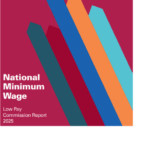NDNA tells MPs simplify funding rules to help parents and providers
NDNA’s Director of Policy and Communications, Jonathan Broadbery, today gave evidence to the Department of Work and Pension’s Select Committee regarding how parents on Universal Credit accessed quality early education and childcare places. He also highlighted the wider issues the sector is facing and advanced NDNA’s case for increased investment and a simplified childcare system for parents and providers.
The evidence session came during Childcare and Early Education week where MPs from all parties have been showing recognition and support for early years educators across the sector.
During the session, MPs heard about the practical challenges to providers caused by the Universal Credit system. The importance of access to early education in supporting children from dis-advantaged backgrounds was emphasised as well as workforce challenges in the sector, rising costs of delivery and pressures on family finances. NDNA shared evidence about research which shows that quality Early Years provision can combat inequality and support children’s development as well as avoiding further challenges and costs further down the line.
However, with the huge administrative pressure and staffing costs to providers in keeping up with different regulations and sources of funding across multiple government departments and local authorities, the entire sector is facing financial instability.
NDNA’s Director of Policy and Communications, Jonathan Broadbery said “This inquiry by MPs into Universal Credit and childcare is really important for both parents and providers. Our current system of support to parents with childcare costs is a complex mosaic of approaches and Universal Credit is just one part of that.
“We know from what the sector is telling us that the current childcare element of Universal Credit adds extra administrative burdens on providers and can create problems for parents and providers especially with cash flow. Having retrospective payments can be a barrier to taking up a place and can even lead to jobs being turned down as parents are unable to find upfront payments.
“We want to see a simpler system across the board that’s easier for parents and providers to manage and is fit for purpose. This will increase uptake of places and mean more children can access high quality early years education and care, which in turn supports working families.”
Read more:
NDNA’s sustainability and underfunding research
Work and Pension Select Committee inquiry into Universal Credit and childcare costs
- England
- Childcare and Early Education Week
- Department of Work and Pensions
- Select Committee
- Universal Credit
Similar Articles
Government research shows school-based nurseries are not delivering flexible provision to its communities

One in seven childcare professionals paid around minimum wages


